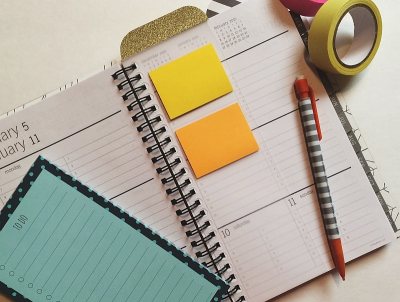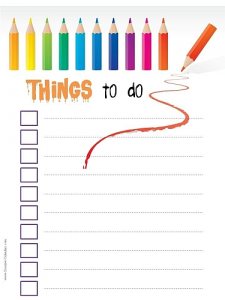
by Katherine Scott
In today's busy world, more often than not, you find yourself struggling to balance your commitments, whether it be study and work, or your partner and your social life. For instance, last semester, I had to learn how to do online teaching at work. I had to train myself on how to create videos and learn how to use an e-learning platform. As this was time-consuming, I fell behind in my studies (Master of Education, TESOL at University of Southern Queensland) and had to drop university for the semester to concentrate on my work. I was much happier when I did this, and it was rewarding when my students told me that they enjoyed my online lessons. Now I have enrolled in the courses again, and I am confident in approaching these courses because I know what to expect.
In order to create balance, you have to consider your values, your commitments, and your priorities. Priorities are going to be different for everyone. Thus, these recommendations below may not fit perfectly for all teachers and adult students, but they helped me.
- Start by getting a diary and a calendar. Schedule everything that is important to YOU, such as birthdays, anniversaries, assignment due dates, and work deadlines. This will give you an overall idea of the amount of time you have in the short term and long term.

- Try to get things done as soon as possible. Avoid procrastinating because heaven forbid that you leave it until the last minute and your internet dies, shops are closed, or you forgot to get a gift. This stuff usually happens when you are not prepared enough. Think of your wellbeing and take action.
- Clean the distractions off your desk. Mess and stress don't help the situation, so don't allow them to accumulate. Make your surroundings comfortable.
- Break things down into small goals. Then make a list of each section of an assignment that needs to be done and break it into small sections and small goals with rewards at each stage. Smaller the better because you feel a sense of achievement each time you check something off the list, which gives you the confidence to continue.

- Make study a daily habit. It can be for thirty minutes to an hour, but do it every day and at the same time every day to help you keep consistent. When it comes down to doing that assignment, and you've not been studying every day, you won't feel like doing it when you need it done. Do parts of assignments over a long period of time. It also helps with the editing process, as well. Sometimes you need to look at what you wrote the next day with a fresh pair of eyes. If you're not studying for university or work, then you should set that time aside for reading something of your choice.
- Make time when it matters. Go to family birthday parties and organize a dinner at a restaurant on your anniversary. You can always get another job, but your family is for life.
- Block out time when you can't socialize. Don't say yes if you can't make it. You can try to go to all social events if you can, but if push comes to shove, say no or reschedule. It also helps to tell your friends what your goals are and what you need to do to manage that. A friend should understand that. However, try not to cancel too many events or reschedule, as your relationships will suffer. Work out the times you need to be free of engagements.
- Don't forget to reward yourself for succeeding in reaching your goals. There are different ways of acknowledging your efforts that you'll appreciate more than others. Try working out what matters to you. Take the Love Languages quiz. Then try rewarding yourself using your love language – words of affirmation (record your voice and listen to it later or tell your mother and she'll sing those praises), quality time (bubble bath), receiving gifts (buy a luxury item), acts of service (fancy restaurant), or physical touch (massage).
- Finally, remember to give yourself a break. Don't criticize yourself every time you underestimated your commitments and your tight schedule. It will happen from time to time. Too much criticism will damage your health and self-esteem. Re-evaluate what you could have done better and learn from it.
Bio
Katherine Scott is a Lifetime member of KOTESOL, Gwangju Chapter. She is an Australian ESL teacher at Goheung Boys Middle School. Her teaching experience includes South Korea for 2 years, Australia for seven and a half years, and England for two and a half years. Katherine has completed a Bachelor of Education (Early Childhood) and is currently completing a Master of Education (TESOL) at the University of Southern Queensland. She has also taught North Korean refugees and is a sponsor of TNKR. Her interests include camping, skiing, baking, reading, ballroom dancing, and watching television dramas. katherine.scott20649@gmail.com


